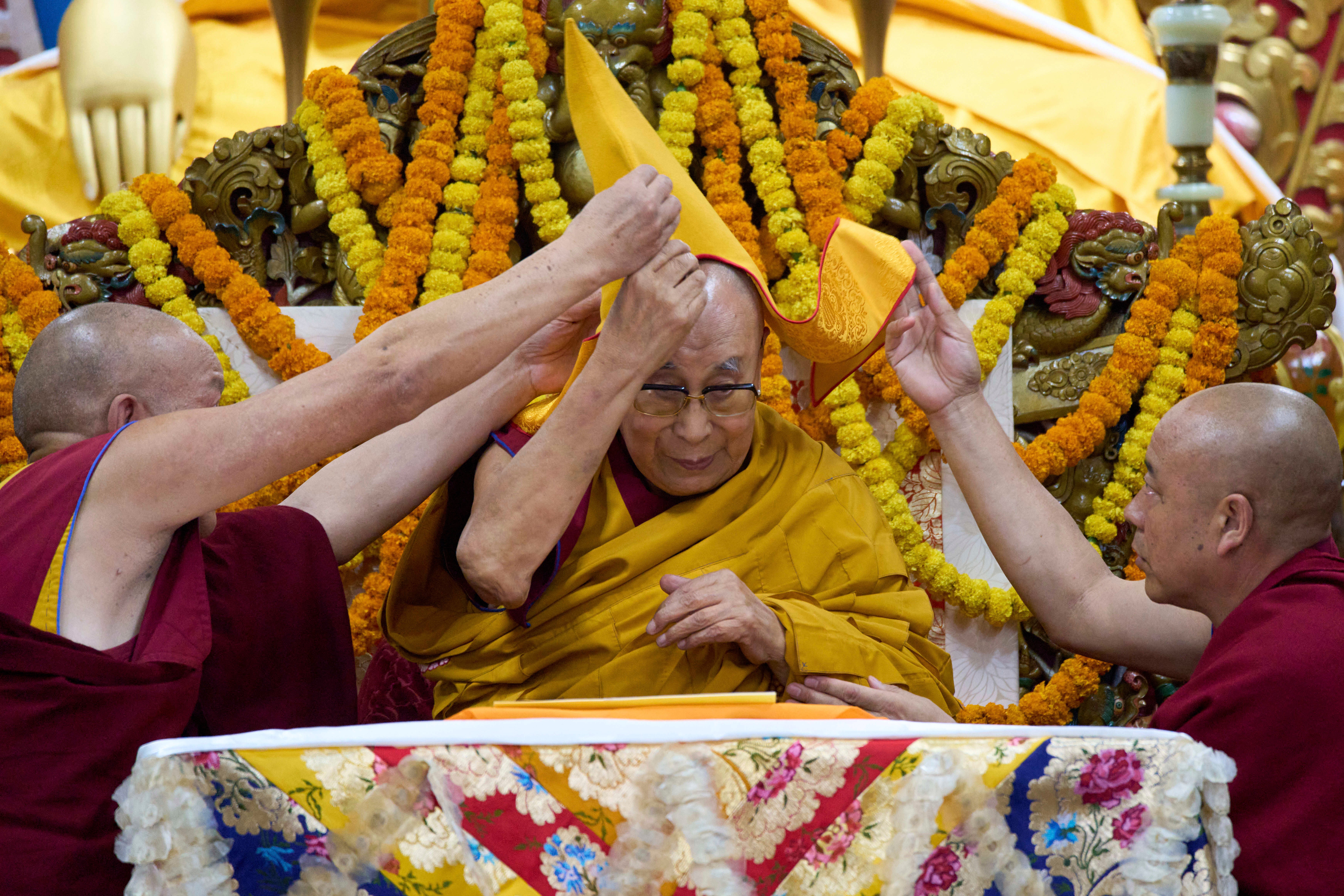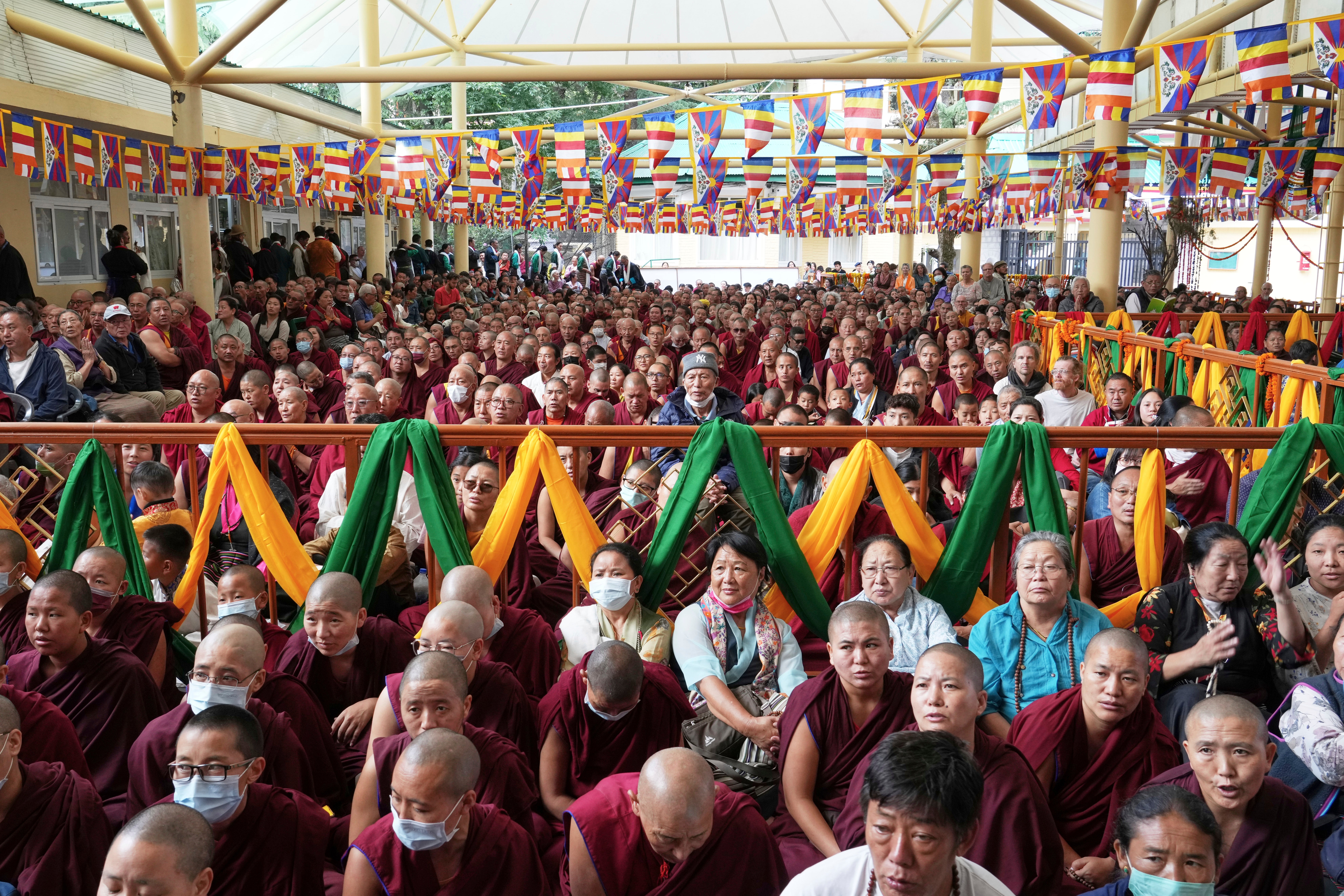As the Dalai Lama approaches his 90th birthday this Sunday, the question of his succession looms large.
The issue is captivating not only his millions of followers but also drawing significant strategic interest from global powers including China, India, and the United States.
The Nobel Peace Laureate is widely regarded as one of the world's most influential figures, with his spiritual and moral authority extending far beyond the confines of Buddhism.
Central to Tibetan Buddhist tradition is the belief that the soul of a senior monk is reincarnated after death.
This ancient practice was pivotal in identifying the 14th Dalai Lama, born Lhamo Dhondup on July 6, 1935, to a farming family in what is now Qinghai province. He was recognised as the reincarnation of his predecessor at just two years old.
According to his official website, a search party dispatched by the Tibetan government made the determination based on several auspicious signs, including a vision revealed to a senior monk. Their conviction was solidified when the young toddler reportedly identified belongings of the 13th Dalai Lama, exclaiming, "It's mine, it's mine."
In the winter of 1940, Lhamo Thondup was taken to the Potala Palace in Lhasa, the capital of today's Tibet Autonomous Region, and officially installed as the spiritual leader of Tibetans.
How will his successor be chosen?
In his book Voice for the Voiceless, released in March 2025, the Dalai Lama said his successor would be born outside China.
The Dalai Lama has lived in exile in northern India since 1959, after fleeing a failed uprising against the rule of Mao Zedong's Communists.
He wrote that he would release details about his succession around the time of his 90th birthday. On Monday, addressing a gathering in Dharamshala, he said: "There will be some kind of a framework within which we can talk about the continuation of the institution of the Dalai Lamas". He did not elaborate.
The Tibetan parliament-in-exile, based in the Himalayan town of Dharamshala, like the Dalai Lama, says a system has been established for the exiled government to continue its work while officers of the Gaden Phodrang Foundation will be charged with finding and recognising his successor.
The current Dalai Lama set up the foundation in 2015 to "maintain and support the tradition and institution of the Dalai Lama" with regard to his religious and spiritual duties, it says on its website. Its senior officers include several of his aides.

What does China say?
China says its leaders have the right to approve the Dalai Lama's successor, as a legacy from imperial times. A selection ritual, in which the names of possible reincarnations are drawn from a golden urn, dates to 1793, during the Qing dynasty.
Chinese officials have repeatedly said the reincarnation of the Dalai Lama should be decided by following national laws that decree use of the golden urn and the birth of reincarnations within China's borders.
But many Tibetans suspect any Chinese role in the selection as being a ploy to exert influence on the community.
It is inappropriate for Chinese Communists, who reject religion, "to meddle in the system of reincarnation of lamas, let alone that of the Dalai Lama," the Buddhist leader has said.
In his book, he asked Tibetans not to accept "a candidate chosen for political ends by anyone, including those in the People's Republic of China," referring to the country by its official name.
Beijing brands the Dalai Lama, who won the Nobel Peace Prize in 1989 for keeping alive the Tibetan cause, as a "separatist" and prohibits displays of his picture or any public show of devotion towards him.
In March 2025, a Chinese foreign ministry spokesperson said the Dalai Lama was a political exile with "no right to represent the Tibetan people at all".
China denies suppressing the rights of the Tibetan people, and says its rule ended serfdom in, and brought prosperity to, a backward region.

What role could India and the US play?
Apart from the Dalai Lama, India is estimated to be home to more than 100,000 Tibetan Buddhists who are free to study and work there.
Many Indians revere him, and international relations experts say his presence in India gives New Delhi some kind of leverage with rival China.
The United States, which faces rising competition from China for global dominance, has repeatedly said it is committed to advancing the human rights of Tibetans.
U.S. lawmakers have previously said they would not allow China to influence the choice of the Dalai Lama's successor.
In 2024, then U.S. President Joe Biden signed a law that presses Beijing to resolve a dispute over Tibet's demands for greater autonomy.
Growing calls for Pakistan to rescind Trump’s Nobel Peace Prize nomination
Air India ‘sabotage’ theory investigated after plane crash killed 270
Two dead and seven missing after cloudburst triggers landslide in Indian Himalayas
Three devotees killed and over 50 injured in crowd crush at India chariot festival
Britain’s stranded F-35 fighter jet is a test of its trust in India
Air India ground services firm apologises after staff party video goes viral







